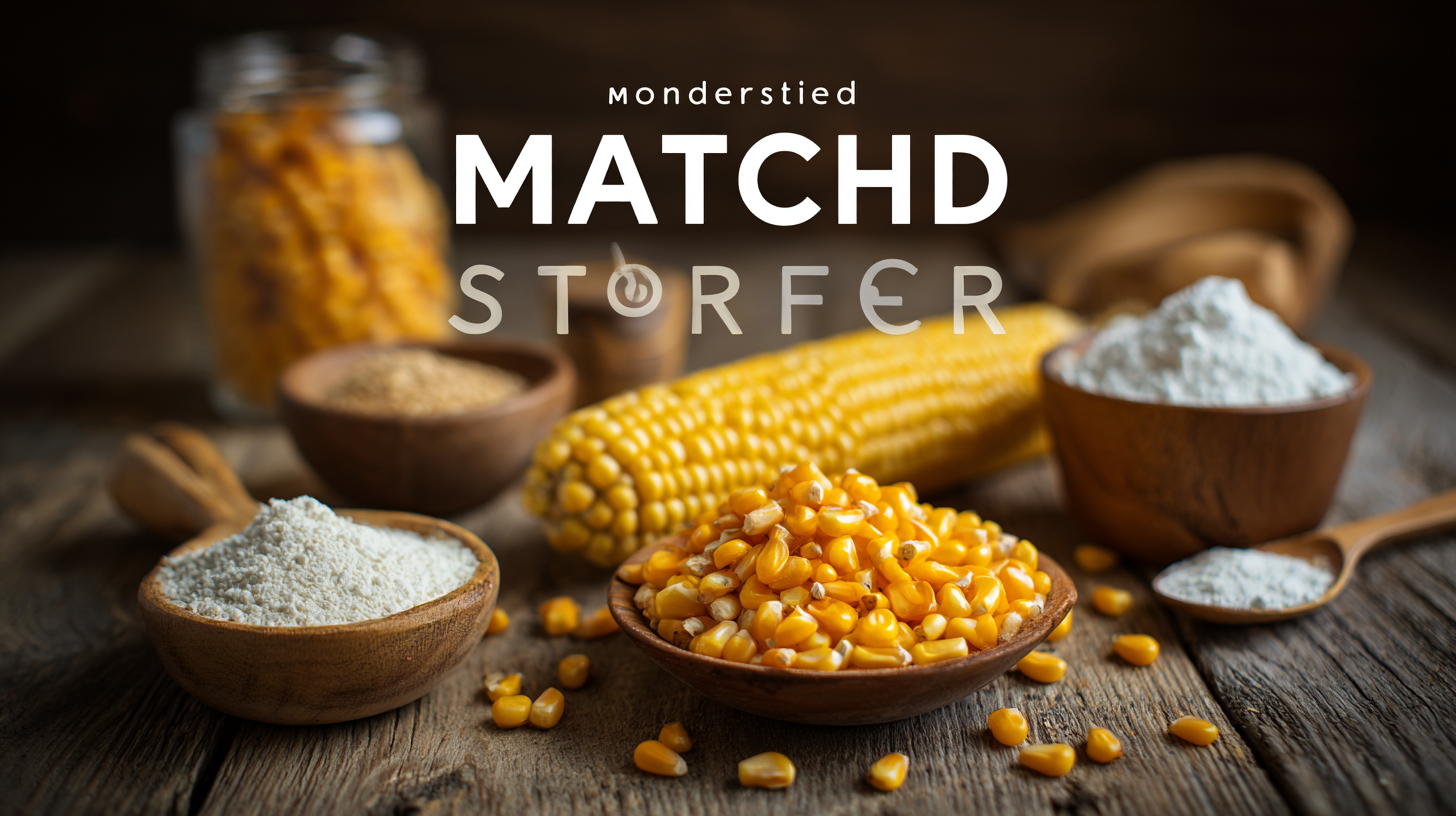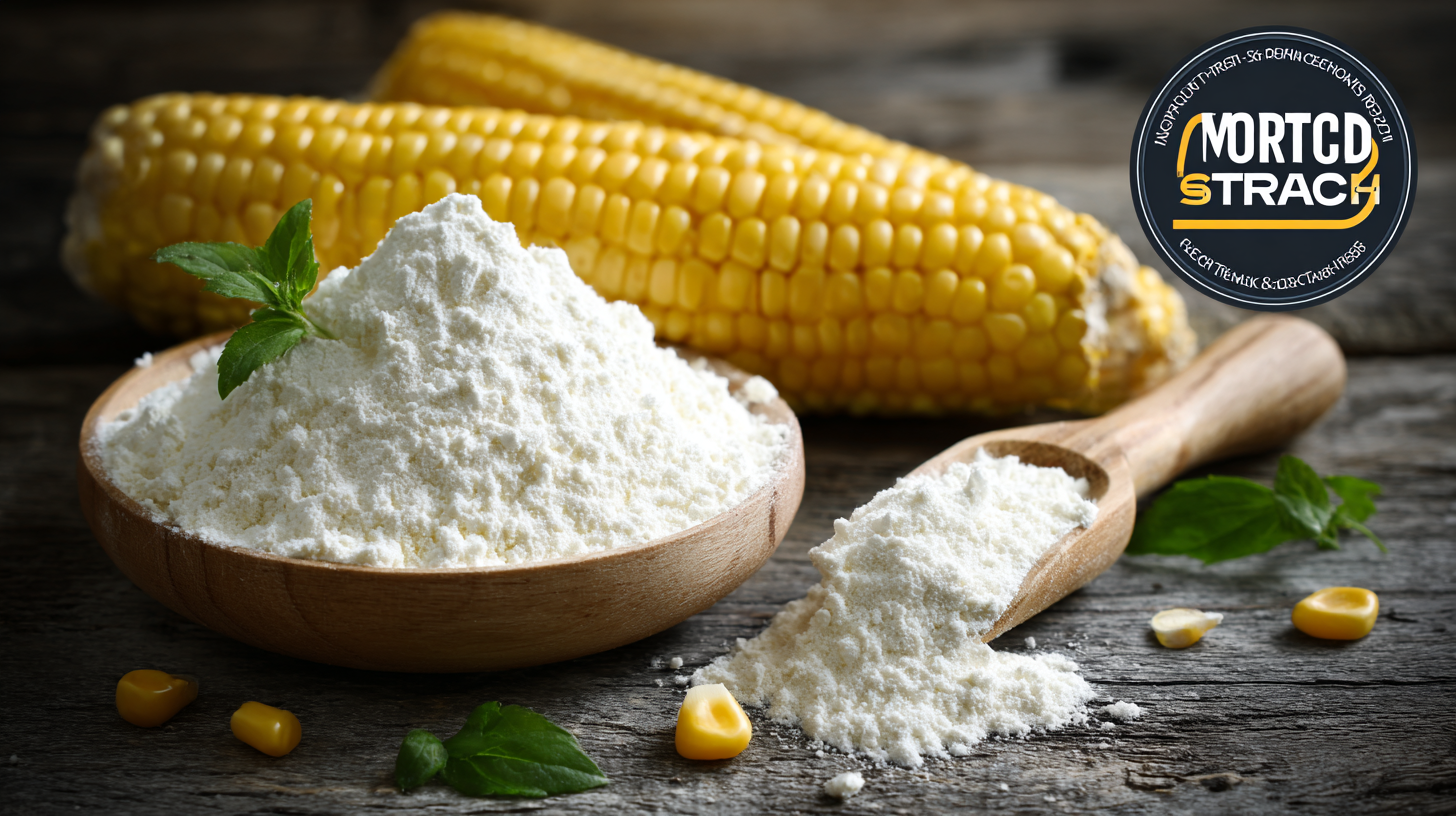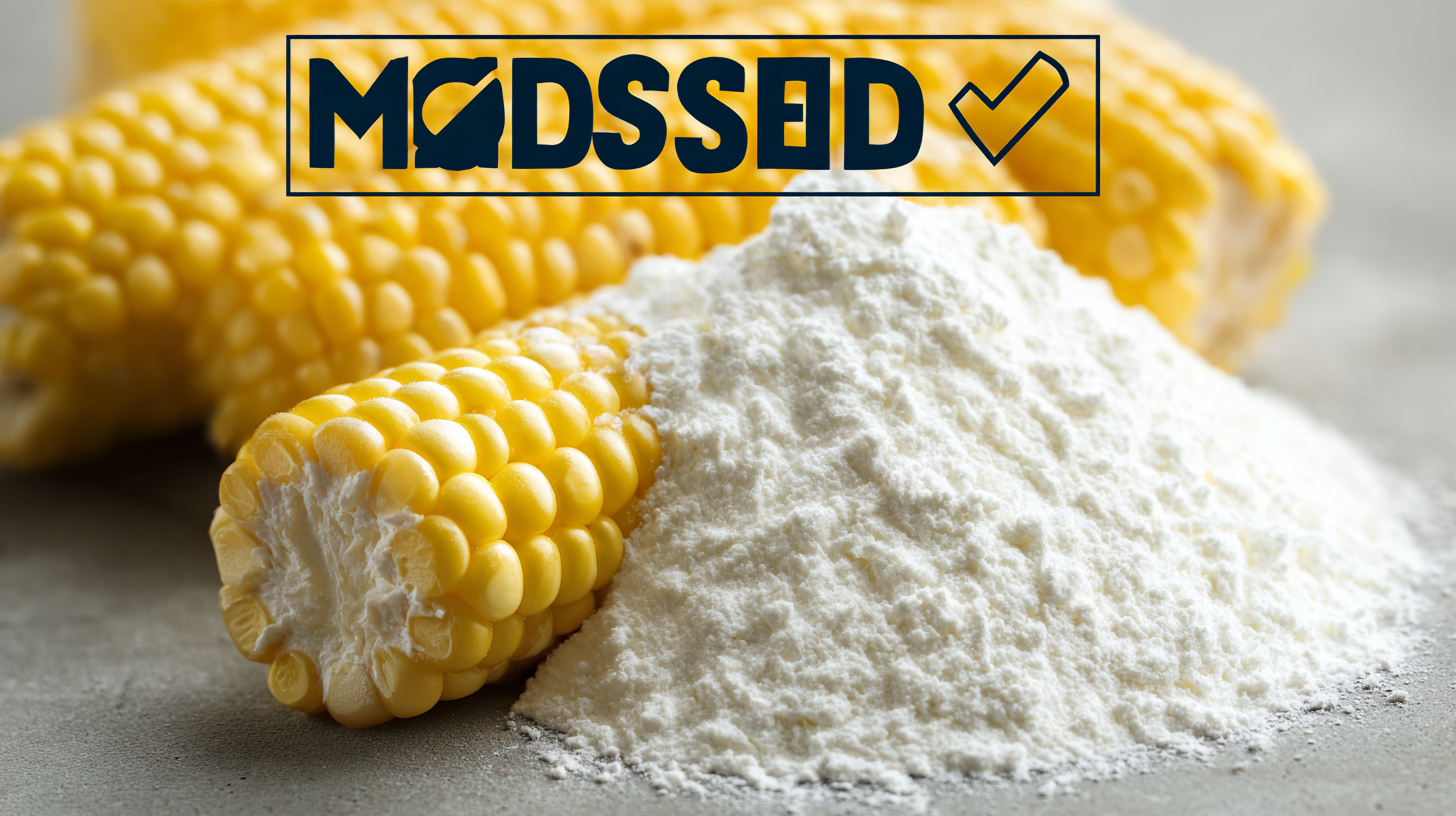
Embracing 2025 Tech Trends: A Comprehensive Checklist for Optimal Best Modified Corn Starch Production
As we look ahead to 2025, the food and industrial sectors are poised for significant transformation, particularly in the realm of Modified Corn Starch production. According to a recent report by MarketsandMarkets, the global modified starch market is projected to reach USD 18.7 billion by 2025, driven by the increasing demand for natural and clean-label ingredients in various applications. This makes understanding the latest technological trends not only timely but crucial for manufacturers aiming to optimize their production processes.

Key advancements in processing techniques, sustainability practices, and the integration of smart technologies will be pivotal in enhancing the quality and efficiency of Modified Corn Starch. This comprehensive checklist will guide stakeholders through the essential steps to embrace these trends, ensuring they remain competitive in a rapidly evolving industry landscape.
Identifying Key Qualities of Top Modified Corn Starch Suppliers
When searching for top modified corn starch suppliers, it’s essential to identify key qualities that set the best apart from the rest. First and foremost, suppliers should prioritize quality assurance through rigorous testing standards. This ensures that the modified corn starch produced meets the necessary specifications for various applications, whether in food production, pharmaceuticals, or industrial uses. A reputable supplier will provide detailed documentation of their quality control processes, including certifications and compliance with industry regulations.
Moreover, an ideal supplier should demonstrate innovation in their product offerings. As technology advances, the capabilities of modified corn starch evolve, catering to diverse customer needs. Suppliers that invest in research and development not only enhance their product range but also contribute to the overall advancement of the food industry. They should be able to provide custom solutions tailored to specific production requirements, showcasing their flexibility and commitment to client satisfaction. Additionally, reliable customer support and efficient logistics are critical, ensuring timely delivery and responsiveness to customer inquiries, further solidifying their position as a trusted partner in the production process.

Essential Certifications and Standards for Quality Assurance
In the rapidly evolving landscape of modified corn starch production, adherence to essential certifications and industry standards is paramount for ensuring quality assurance. By mastering quality control compliance in business process outsourcing (BPO), producers can bolster client trust and solidify their market position. The incorporation of stringent practices not only enhances product reliability but also addresses the growing consumer demand for transparency and safety in food production.

Moreover, as we anticipate technological advancements in 2025, staying updated with the latest certifications related to modified corn starch becomes critical. Various industries, including food safety and pharmaceutical applications, increasingly emphasize the need for robust quality assurance protocols. Engaging with these standards allows producers to navigate challenges effectively and streamline operations, ultimately leading to improved product integrity and customer satisfaction. As the market continues to evolve, investing in quality certifications will be vital for maintaining a competitive edge.
Leveraging Technology to Enhance Supplier Communication
In the evolving landscape of modified corn starch production, effective supplier communication has emerged as a pivotal factor for success. Leveraging technology can significantly enhance this aspect, ensuring that all stakeholders are aligned and informed. By adopting collaborative platforms and real-time communication tools, manufacturers can streamline information sharing with their suppliers, thus fostering a more transparent and responsive supply chain. This synergy not only reduces delays but also promotes timely adjustments to production schedules based on market demand.
Moreover, utilizing data analytics can provide deeper insights into supplier performance and inventory levels, enabling more strategic decision-making. By implementing integrated systems that track order statuses, production timelines, and quality metrics, companies can proactively address potential issues before they escalate. This proactive stance cultivates a stronger partnership between producers and suppliers, ultimately leading to improved efficiency and product quality in modified corn starch production.
As the sector looks towards 2025, embracing these technological advancements in supplier communication will be crucial for staying competitive and optimizing operational effectiveness.
Evaluating Supplier Performance: Metrics You Should Track
In the rapidly evolving landscape of modified corn starch production, evaluating supplier performance has become crucial for ensuring quality and efficiency. Metrics such as delivery accuracy, lead times, and consistency in product specifications are essential for maintaining a competitive edge. According to a recent report by Smithers Pira, companies that effectively track supplier performance see a
20% improvement in overall production efficiency. This emphasizes the importance of having a robust measurement framework in place.
Tip: Implement a supplier scorecard that includes key performance indicators (KPIs) tailored to your production needs. This will help you evaluate suppliers on critical aspects like quality control, communication effectiveness, and responsiveness to issues.
Another vital metric to consider is cost management. As per a survey by Grand View Research, around 30% of production costs in the food industry can be traced back to supplier pricing strategies. Regular cost audits should be conducted to compare supplier prices and identify potential savings.
Tip: Engage in regular negotiations and foster strong relationships with suppliers to gain better pricing and additional support services, which can significantly enhance your cost structure without compromising quality.
Building Long-Lasting Partnerships with Your Suppliers
In the rapidly evolving landscape of modified corn starch production, establishing long-lasting partnerships with suppliers is more crucial than ever. A report from Mordor Intelligence indicates that the global modified starch market is projected to reach USD 10.5 billion by 2025, with a CAGR of 5.2%. Forming strong relationships with your suppliers can enhance your production capabilities and facilitate access to innovative technologies and sourcing options.
Tip: Regular communication is key to successful supplier relationships. Schedule bi-monthly meetings to discuss your production needs and gather feedback on your suppliers' capabilities. This proactive approach can foster collaboration and ensure that you remain aligned with industry advancements.
As the demand for modified corn starch continues to grow, collaborating with reliable suppliers can provide competitive advantages. According to a report by Grand View Research, the food segment is expected to dominate the market, which highlights the importance of partnering with suppliers who are well-versed in food safety regulations and quality control measures.
Tip: Implement a supplier evaluation process based on quality, reliability, and sustainability practices. This will help you identify partners who not only meet your immediate needs but can also evolve with your business in the future.
